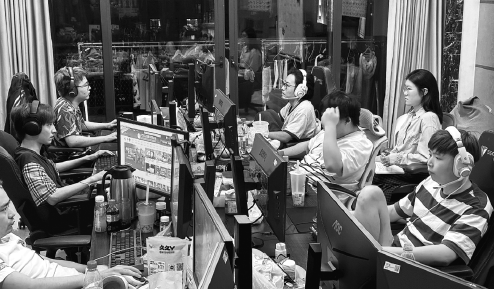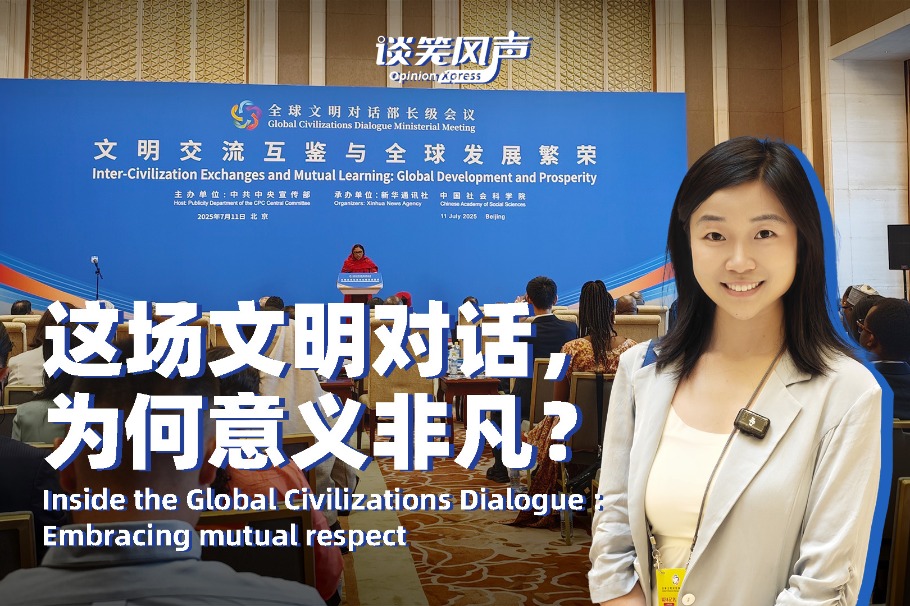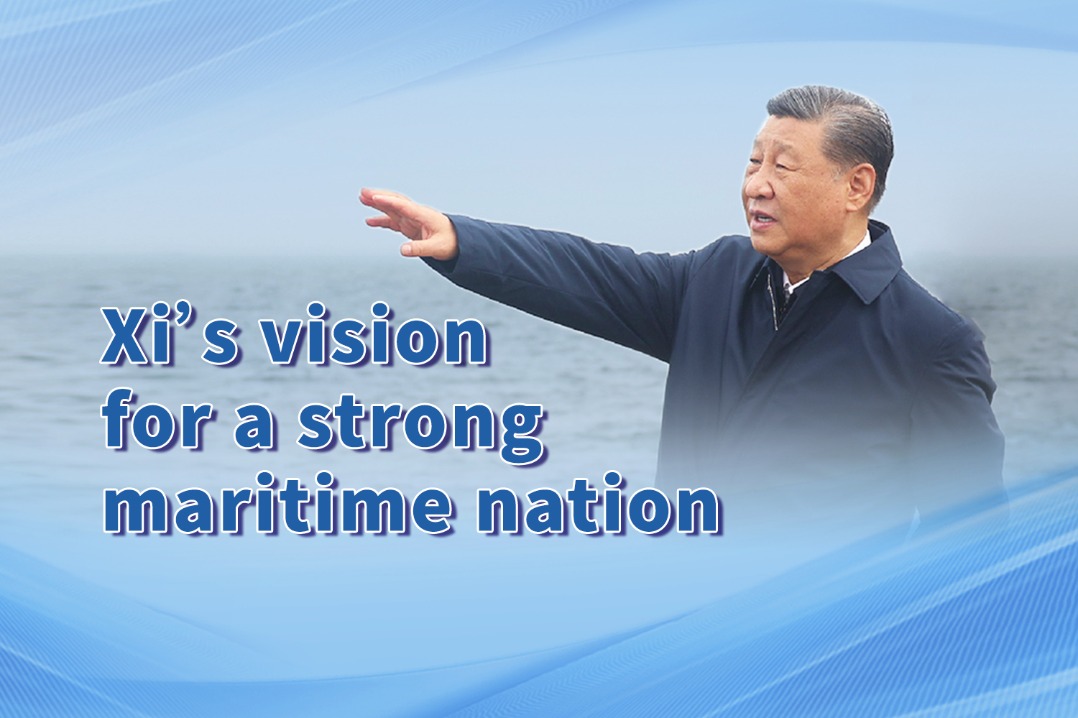Psychologist plays vital role in success of esports industry
Counseling provides young players with outlet to relieve stresses of competing in high-pressure events

Liu Tongyu's daily life is closely tied to esports players, but even as a non-player, she has become increasingly indispensable within the team.
As one of the only full-time esports psychologists in the nation, the 27-year-old serves in the LGDGaming esports club. Conducting regular conversations and self-psychological assessments with teammates, providing psychological intervention, organizing workshops, and adjusting players' mental states are all part of her daily job.
As a very niche profession, Liu believes that her career choice is a natural outcome.
Born in the Inner Mongolia autonomous region, Liu studied Applied Psychology at Beijing Sport University and pursued a master's degree in Performance Psychology at the University of Edinburgh in the United Kingdom.
"I have learned about the factors that affect high-level sports, targeted training and improvement methods, as well as courses on how to improve team performance, coaching skills, and cohesion," said Liu, adding that the matched major was one of the reasons she chose this job.
"I know the importance of psychology in competitive sports. While some people don't have any concepts about this profession, Pan Fei, the general manager of LGD, strongly agrees with psychological counseling. Therefore, I have become a full-time esports psychologist for this club, and I am currently the only one in the country," she added.
Although she began to make progress, it was not a simple task.
Being able to build trust with the team was her first obstacle.
"Psychological counseling can easily be misunderstood and lead to strong resistance when people have a lack of understanding of this profession," Liu said.
To integrate into this group, Liu put in a lot of effort, such as participating in the daily training and game review of team members six days a week and communicating with each team member for 30 minutes every week to dispel their rejection of psychological counseling.
In addition, unlike a temporary psychological counselor, Liu also helped team members to solve issues in romantic and interpersonal relationships, which soon earned her the trust of her teammates.
Liu explained that esports players would face different psychological problems at different stages. For example, abnormal performance during the game was a very common issue among the young or inexperienced players.
"Some players will set high expectations or goals before a game, so when the game does not go in their expected direction it will easily lead them to pay excessive attention to mistakes and self-criticism, resulting in an even worse performance," Liu said.
Therefore, she will guide the players to set more flexible standards, including redefining success in the game, developing a more flexible mindset, and practicing breathing and attention training, which can help them focus more quickly on the game and perform better.
Meanwhile, some players over the age of 25 are prone to developing a psychological state of self-doubt, as many people believe that the golden age for esports players is around 20 years old. In this case, Liu will make cognitive adjustments for them, telling them about the impact of individual differences on competitive competition, and using science and theory to let them know that they can reach their peak at the age of 25 or above.
In addition to communicating and adjusting their psychological state, Liu always plays games with the team, such as "blind" walking to increase trust and cooperation among team members. She will also raise everyone's hormones and heart rate to an excited state before the competition, which will all affect the results of esports competitions.
However, players are not her only focus with coaches sometimes also needing help.
"The importance of a coach in the team is sometimes even greater than that of a group of team members. This position is very difficult, requiring tactics, analysis, as well as the ability to face uncontrollable situations. The pressure on a coach is always high," she added.
China's esports have been rapidly developing in recent years thanks to the strong policy support and updating of digital technology. According to the data released at the China Digital Entertainment Congress held in Shanghai in July, the overall revenue of China's esports industry reached 75.993 billion yuan ($10.34 billion) from January to June, an increase of 11.74 percent month on month.
At the upcoming 19th Asian Games, esports became an official event for the first time and was included in the national medal list. It was also the only event that required lottery ticket buying at this Asian Games and the tickets were soon sold out.
With more people getting involved in esports in China, the importance of esports psychological counselors has become indispensable.
Player Danny (Kyle Sakamaki, US) from the Evil Geniuses team was announced last September to be temporarily absent from the League of Legends Championship Series due to psychological issues during his peak period. Top Esports club's coach Luo Sheng, has temporarily left the team due to psychological reasons. Korean player Jang "Nuguri" Ha-gwon, the former World Champion in DWGKIA also suffered from psychological problems and announced his retirement from the professional League of Legends scene at the age of 23 in 2022.
"I have met many top athletes, including champions in Olympic Games, World Championships, and Asian Games. Many more people have suicidal tendencies than we imagined, and some of them also have mental health problems, such as depression," said esports psychological counselor Liu Jiejie who has served in LNG Esports.
"During my years as an esports counselor, some of the players I have encountered have varying degrees of psychological disturbance," Liu added.
Early this year, Liu conducted a mental health screening on 45 esports players, covering multiple popular esports events.
Among them, 17 players experienced significant stress, 18 had symptoms of mild anxiety, six had moderate anxiety, and one had a more severe condition with a high frequency of suicidal ideation. Liu said the player with the most serious mental health problem has been diagnosed with severe depression by the Shanghai Mental Health Center and accepted treatment.
"Although the sample for this survey cannot fully represent the entire esports industry, I think that all esports clubs need to pay more attention to psychological issues," Liu added.


Today's Top News
- Finding right way to get along serves common interests of China and US
- China, US to boost communication and dialogue at all levels
- Chinese FM calls for joint efforts in finding right way for China, US to get along
- Xi calls for creating more fine cinematic works
- Help youth create their ideal families
- China prosecutes 21 key members of telecom fraud crime group in northern Myanmar






























